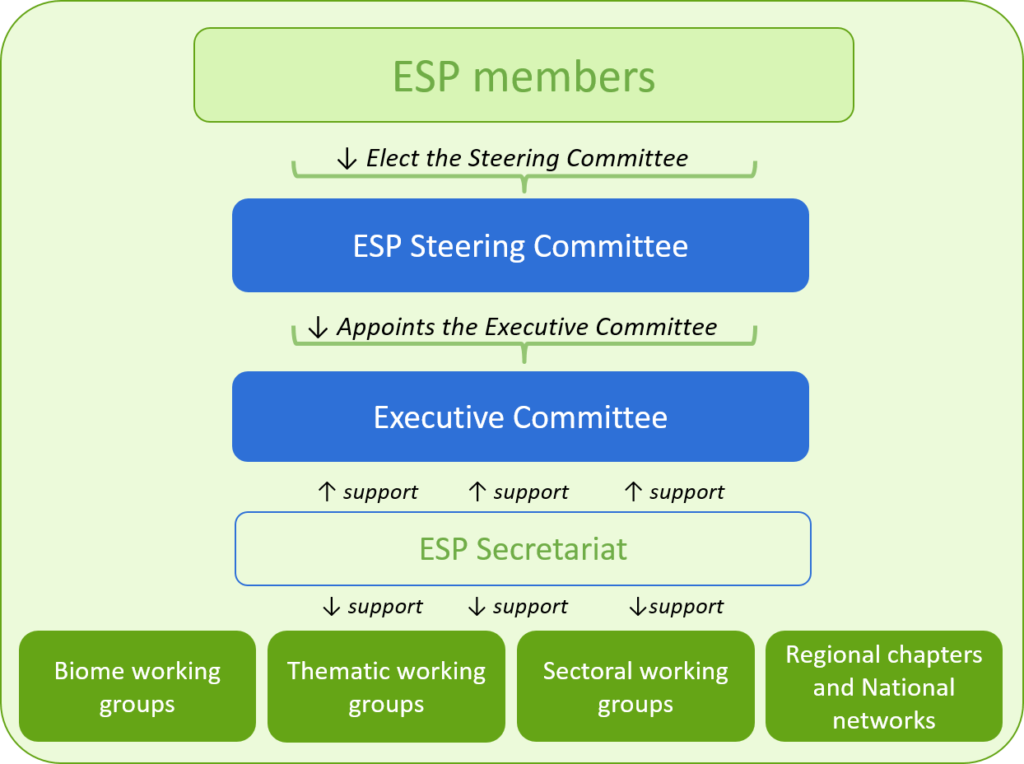ESP has several internal teams and committees for its internal organization and coordination.
- Executive committee*
- Steering committee advises the Executive Committee, provides oversight of the operation and governance of the ESP, and makes broader decisions affecting the general membership of the ESP.
- ESP secretariat
- Issue commissions ensure proper attention to important issues. Currently ESP has five issue commissions:
- Long-term Financing Strategy Commission supports the development of a long-term funding strategy for ESP
- International Relations Commission strengthens and maintains ESPs role in the ES science/policy/practice nexus at an international level and provides access for ESP members to key organisations.
- Conference Design Commission develops a consistent program for the ESP-conferences.
- Membership Engagement Commissions discusses membership-issues
- External Communications Commission
- In addition to that ESP has several task forces – dedicated teams working on our services.
*At the moment, an Interim Executive Committee has been appointed, tasked with overseeing a transition into ESP’s next stage of governance. They will set up the procedure for electing the next ESP Executive Committee.
The Ecosystem Services Partnership is an institutional membership organization, which uses the following governance structure:
- Organizations as well as individuals can become ESP members (see ESP membership page). ESP members elect the Steering Committee.
- The purpose of the Steering Committee is to appoint and advise the Executive Committee and make decisions affecting the general membership. The total number of SC-members is limited to 30.
- The Executive Committee is responsible for ensuring proper functioning of the Partnership. Membership is limited to 7-9 persons: Chair, co-chair, Secretary, Treasurer and 3-5 Coordinators.
- The partnership is governed according to the ESP Bylaws. The current ESP Bylaws were approved by majority vote in September 2014.
- The ESP secretariat supports the Steering Committee & Executive Committee, ensures effective communication with the Members and provides support to the Working Groups.
- ESP has three main types of ESP Working groups which are led by active individuals of the ESP membership, to facilitate further development of the science and practice on specific topics and stimulate information exchange and outreach.

